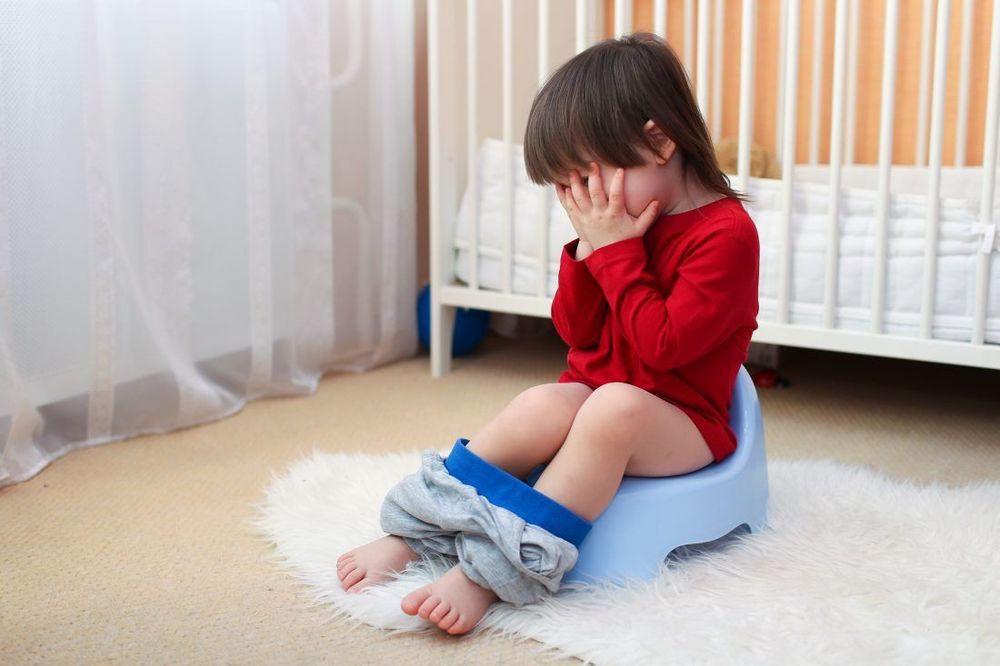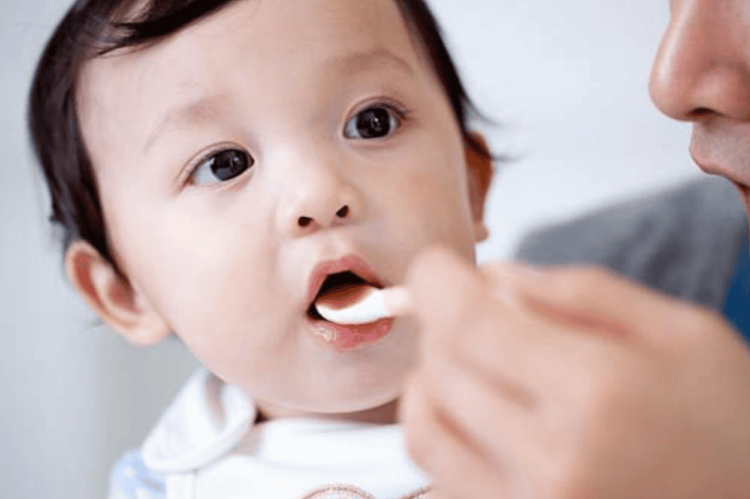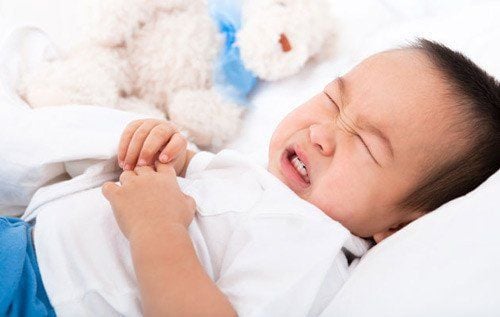This is an automatically translated article.
The article is professionally consulted with Master, Doctor Nguyen Minh Tuan - Pediatrician - Pediatrics - Neonatology Department - Vinmec Danang International General Hospital.Diarrhea is a common digestive problem in both adults and children. For babies who are in the period of breastfeeding or eating solid foods, they are very susceptible to diarrhea. Diarrhea in children that doesn't go away can lead to severe dehydration.
1. What is infantile diarrhea?
Normally, a newborn's stools are quite soft and a little thick, especially in babies who are exclusively breastfed. In addition, most newborns have frequent bowel movements, several times a day. Therefore, it is difficult to tell if the baby is having diarrhea or not.In case the baby has loose or bulk stools, even shows signs of oozing out of the diaper, and the frequency of the baby's bowel movements is also more than usual, this is a sign that the baby have diarrhea.
For babies who are partially or completely formula fed, they may experience less liquid or watery stools, because the ingredients in formula can help make the baby's stools firmer and light tan color.
2. What causes diarrhea in children?
Diarrhea in children has many different causes. While most diarrhea in children doesn't last long, in rare cases it can be a sign of an unusual health problem in your child and needs to be treated early.2.1.Causes of diarrhea in breastfed babies A new study has found that breastfed babies seem to have less diarrhea than those who are partially or completely formula fed. . In fact, diarrhea in breastfed babies can be caused by the following reasons:
Change in mother's diet: A sudden change in diet in nursing mothers Breastfeeding can also cause diarrhea in babies. For example, when you eat too many sugary desserts or hot spicy foods in the evening, it can alter breast milk. This causes the baby's tummy to rumble and move quickly with the milk, leading to diarrhea. Maternal use of medications: If you are taking certain medications, such as antibiotics, while breastfeeding, which can cause them to pass into your breast milk and lead to diarrhea in your baby. Additionally, nutritional supplements, such as protein powders or vitamins, can interfere with breast milk supply and upset your baby's stomach. In fact, everything a mother consumes on a daily basis can alter breast milk supply, so during breastfeeding, you should consult your doctor about a healthy and balanced diet. health benefits for both mother and baby.

2.4.Rare causes of diarrhea in children Rarely causes diarrhea in children from serious medical conditions. Although these causes are not common, they can cause the symptoms of diarrhea to linger, or even not, go away.
The following are rare causes of diarrhea in children, including:
Serious intestinal infections, such as bacillary dysentery Cystic fibrosis C. Difficile infection Neuroendocrine tumors

3. How does diarrhea affect the baby's body?
Diarrhea can cause a baby to lose a lot of water and electrolytes when they have diarrhea. Within 1-2 days of the onset of diarrhea, your baby's body will lose water very quickly. This is especially dangerous for the health of children, especially babies.You need to contact the doctor immediately if you notice that your baby has the following signs of dehydration:
Less wet diapers (reduces the frequency of urination) Dry mouth Or irritability Unusually lethargic or sleepy Crying without tears The soft spot on the top of the head is sunken The skin is not as elastic as usual In addition, you should also take your child to see a doctor immediately if your baby has the following symptoms:
Abdominal pain Fever above 39 degrees Celsius Has diarrhea more than 3 days Rash Abdominal pain for more than two hours Blood in stools, black, red, or white stools Vomiting Slowness
4. Treatment of diarrhea in children
Healthcare professionals often recommend against giving over-the-counter anti-diarrheal medications to children. Children with severe diarrhea that leads to severe dehydration should be taken to the hospital as soon as possible to have intravenous fluids infused.In addition, the child may also be given oral rehydration solutions and electrolytes. These products are available at drugstores to help prevent and treat dehydration and electrolytes in children.
If your child is eating solid foods, you should switch to more liquid and starchy foods, such as cereals, bananas and apple sauce until the diarrhea stops. In addition, nursing mothers also need to pay attention to their diets and should consult a nutritionist before adjusting them. This will help you avoid any foods that can cause diarrhea in your baby.
Furthermore, infants with diarrhea should also avoid the following foods to prevent their risk of exacerbation:
High-fiber foods Fatty foods Sweets, e.g. biscuits, sodas and cakes Dairy products such as cheese and milk For diarrhea in children caused by bacterial or viral infections are very contagious. So, after changing your baby's diaper, you need to make sure to wash your hands with warm water and soap carefully to prevent the spread of infection. In addition, the diaper changing area for babies also needs to be disinfected and kept clean.

Gathering a team of leading pediatricians: including leading experts with high professional qualifications (professors, associate professors, doctors, Master's degree), experienced, worked at major hospitals such as Bach Mai, 108.. The doctors are all well-trained, professional, conscientious, knowledgeable about young psychology. Besides domestic pediatricians, the Department of Pediatrics also has the participation of foreign experts (Japan, Singapore, Australia, USA) who are always pioneers in applying the latest and most effective treatment regimens. . Comprehensive services: In the field of Pediatrics, Vinmec provides a series of continuous medical examination and treatment services from Newborn to Pediatric and Vaccine,... according to international standards to help parents take care of their baby's health from birth to childhood. Advanced techniques: Vinmec has successfully deployed many specialized techniques to make the treatment of difficult diseases in Pediatrics more effective: neurosurgery - skull surgery, stem cell transplantation blood in cancer treatment. Professional care: In addition to understanding children's psychology, Vinmec also pays special attention to the children's play space, helping them to play comfortably and get used to the hospital's environment, cooperate in treatment, improve the efficiency of medical treatment.
Please dial HOTLINE for more information or register for an appointment HERE. Download MyVinmec app to make appointments faster and to manage your bookings easily.
Reference sources: healthline.com, webmd.com













